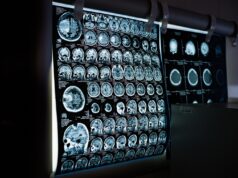Royal Philips has announced the introduction of a suite of magnetic resonance (MR)-based software applications dedicated to neurology, which will debut at the Radiological Society of North America’s (RSNA) 102nd Scientific Meeting and Annual Assembly (27 November–1 December, Chicago, USA). With these introductions for its Ingenia family of digital MRI systems, Philips is reinforcing its global leadership in Neuro MR software applications, providing radiologists with the necessary tools to resolve complex health questions and explore new territories in neurology.
More than one billion people worldwide are affected by neurological disorders, which most commonly include Alzheimer’s, dementia, stroke, traumatic brain injury and multiple sclerosis. According to the World Health Organization, neurological disorders are the leading global burden of disease (economic and health impact), and as an ageing population grows, the identification and treatment of these disorders becomes a critical priority in population health management.
Advanced diagnostics are a critical part of the treatment protocol for neurological disorders. With its superb 3D imaging of soft tissue, Magnetic Resonance Imaging (MRI) can produce a wealth of structural and physiological information of the brain. It has therefore become a standard in neuroimaging, with 65% of neurologists leveraging MR technology over alternative methods. However, 70% of physicians often face challenges with their existing neuro-diagnostic tools, which lack effective imaging and visualisation techniques. Philips’ new suite of neuro-diagnostic applications provides physicians with a comprehensive portfolio of tools designed with the patient in mind, delivering visibility into neurological anatomies and multi-dimensional data to enable diagnostic decision support.
“In a society where neurological disorders impact a large population, continued innovation is critical in improving diagnostic clarity and treatment guidance for all neurological patients,” says Eric Jean, General Manager of MRI at Philips. “We need to advance a field that has an abundant amount of health information yet to be discovered. Our new suite of decision support solutions will empower radiologists with actionable insights to make fast diagnoses to help improve the patient experience and health outcomes overall, while at the same time reducing cost.”
The suite of neuro-diagnostic applications will be available on Philips’ Ingenia family of MRI systems, utilising Philips’ dStream digital broadband architecture technology to provide high quality images at remarkable speed. Unique features include:
- Black Blood Imaging – Boosts diagnostic confidence for radiologists by providing a high resolution 3D brain image with reduction of the blood signal, resulting in higher image quality and giving radiologists deeper insights.
- 4D-TRANCE – Provides contrast-free dynamic (4D) imaging of the brain vascular anatomy. 4D TRANCE is a non-contrast technique promoting patient comfort and enabling radiologists to evaluate both the vascular anatomy and blood flow dynamics.
- MultiBand SENSE – Allows simultaneous acquisition of multiple slices in the brain in fMRI exams, enabling accelerated neurofunctional scans at high speed and high resolution. This feature provides radiologists the option to increase coverage or resolution without increasing scan time.
The suite of neuro-diagnostic applications will also be seamlessly integrated into the latest version of the Philips IntelliSpace Portal, also planned to make its debut at the RSNA annual meeting. With the IntelliSpace Portal, radiologists have access to the latest clinical capabilities covering their advanced visual analysis needs on a single platform to provide a comprehensive overview of the patient for quick detection, confident diagnosis and efficient follow-up. This newest version of Philips IntelliSpace Portal places greater focus on enhanced depth of clinical analysis in neurology, for even the most complex patients.









